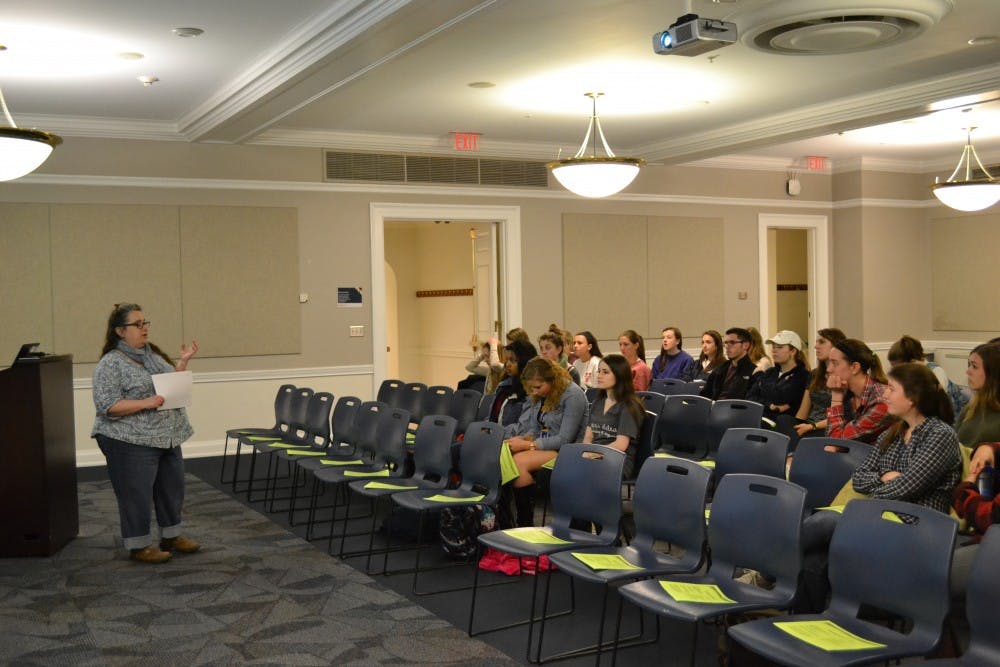Lea Calvani, a child and adolescent advocate from the Shelter for Help in Emergency hosted a forum titled “The Confidence to Care” Monday evening. The forum, which aimed to confront intimate partner violence in college relationships, launched Kappa Delta Sorority’s 2015 Confidence Campaign.
The Confidence Campaign, which seeks to empower Charlottesville women with the confidence to defend their personal rights, is an offshoot of the national Kappa Delta chapter’s partnership with the Confidence Coalition.
During the forum, Calvani provided a general overview of SHE’s resources and services before emphasizing the important role SHE plays in the Charlottesville community. She offered statistics such as the number of hotline calls received and nights of safe shelter provided to over 200 women and children by SHE each year.
Calvani also defined “intimate partner violence” — a phrase which she said conversations can often blur.
“[SHE doesn’t] look at violence as a physical act,” Calvani said. “[SHE looks] at violence as threatening language, [and] the whole gamut.”
Furthermore, Calvani stressed the necessity of education about intimate partner violence.
“[Statistics] used to be helpful to identify who’s having this issue, but if it’s one in four, or one in five [college-aged women affected by intimate partner violence], we all need to be armed with this information,” Calvani said.
Calvani also provided advice on how people can approach their friends who may be dealing with intimate partner violence in a helpful way.
“The more pressure you put on someone who is in an unhealthy relationship [to break up with their partner], it kind of unconsciously pushes the person closer to that person,” Calvani said. “[Saying,] ‘You’re crazy,’ ‘You’re making too big of a deal out of this,’ ‘That’s not what I said’ — those are the things that really take away from someone’s self-esteem.”
Fourth-year Education student Sarah Roderick, a survivor of teen dating violence, spoke to her own story of intimate partner violence and added personal advice. Providing a survivor’s perspective, Roderick described the rationalization of violence which might occur.
“When you’re in a situation like this, if you go out with someone on a first date and they hit you you’re probably not going to go out with that person again, but if you go out with someone on several dates, you have a way to explain that [violence],” Roderick said. “I didnt know that [the abuse] was wrong at the time, but I knew that crying after it, and crying weeks after it wasn’t right.”
Roderick also defined intimate partner violence as an act which transcends pure physical abuse.
“[My abuser] never had to hit me,” Roderick said. “Everything he did was manipulative and emotional…It was never to the point where I could look at a bruise and say, ‘He grabbed me here.’”
Finally, Roderick emphasized the complicated emotionality of physical partner abuse.
“A lot of people forget that it’s love,” Roderick said. “I was falling in love with someone that was being horrible.”
Proceeds from the three Confidence Campaign events throughout the week will benefit SHE. The next event — an Open Mic Night Wednesday — will feature performances from groups including the Whethermen and the Sil’hooettes, while the Rock Your Body Walk Saturday will aim to promote body positivity.







